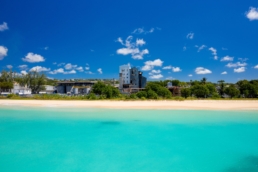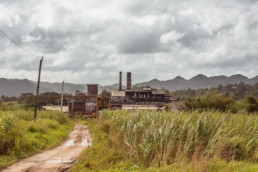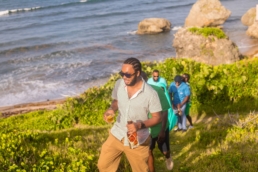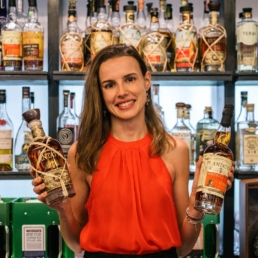ASIA PACIFIC, 12 APRIL – Rum is a versatile and flavorful spirit that has become a staple ingredient in cocktails across the globe. While it is beloved for its distinct taste, one often overlooked element that sets one rum apart from another is terroir. This concept, which is gaining traction in the world of spirits, emphasises the importance of environmental and cultural factors in shaping a rum’s flavour profile.
Explore the world of rum and terroir with us as we learn about the impact of climate, soil, and cultural practices on the unique taste and character of each rum. From the Caribbean to the Pacific and beyond, this concept of rum and terroir promises to reveal the fascinating complexities and nuances of this beloved spirit.
Terroir And Its Impact On Rum
Terroir refers to the environmental factors that impact the growth and development of plants that make spirits, resulting in a unique flavour and aroma profile. In the case of rum, terroir plays a significant role in shaping the final product. Whether it is wheat, sugarcane, agave, or grapes, at its core, all spirits are agricultural products that start with their plants.
Various environmental factors impact the growth and development of sugarcane used in rum production, such as soil type, microclimate, and native yeast strains. Sugarcane grown in tropical and subtropical areas with high humidity grows faster, undergoes photosynthesis, and produces more sugar. In contrast, drier climates can concentrate flavours into specific parts of the plant, resulting in less yield but more concentrated flavours. For example, sugarcane in Fiji is well known to be high quality and easy to grow thanks to the fertile volcanic soil, while Barbados is the only coral island still producing sugar cane thanks to a perfect combination of sunshine, gentle trade winds and cooling rains.
These diverse terroirs lead to distinct styles of rum. Martinique’s Agricole rum showcases the region’s unique terroir with its grassy and vegetal notes, while Jamaican rum’s robust character reflects the island’s culture and fermentation techniques. Each native yeast strain evolves, adding to the complexities and nuances of when, where, and how a spirit is produced.
Factors Coupled With Terroir
While Mother Nature plays a significant role in terroir, human activity such as farming, cultivating, and production methods (fermentation, distillation, ageing) also contribute to it. For instance, a farmer’s decision on what to plant near the crops can directly affect the soil microbiome and impact the overall character of the spirit. Furthermore, each process step, from harvesting to fermentation, can introduce variations and contribute to the unique qualities of the final product.
Expanding on Jamaican rums, we see how culture influences fermentation techniques, resulting in longer fermentation times and a heavier body to the final rum. The result is an emphasis on full-bodied, strong with funky notes of tropical fruits, wood, rubber, spices sweet caramel and molasses rum that reflect the relaxed lifestyle of the island. Unaged rums are a great way to experience the true essence of terroir, but even ageing can contribute to it. Careful consideration of the type and treatment of wood in the barrel by distillers can enhance or mask the flavour compounds in the final spirit.
Why Bartenders Should Care About Terroir In Rum
Whether served neat or in a cocktail, terroir adds depth and complexity to the drinking experience. Bartenders are cluing into this, drawing out certain characteristics in different rums to highlight and compliment other ingredients. For example, rums from Puerto Rico tend to be drier due to the island’s hot climate and a requirement of one year of ageing brings out vanilla and oak notes in the spirit, making it the perfect base for the rich and spice-heavy Coquito cocktail. Rum from the Philippines can lend itself well to fruit-forward cocktails, due to the hot and tropical climate, showcasing the rum’s fresh, bright flavours.
As consumers seek more elevated drinking experiences, educating them about the terroir of the rum being served can increase their appreciation for the nuances and complexities of the spirit. By learning about the rum’s terroir, customers can gain a better understanding of the origins of the flavours and aromas in their glass and develop a deeper appreciation for the craftsmanship and artistry involved in producing premium rums.
The Terroirs Of Plantation Rum
Plantation Rum has made a name for itself in the world of rum by placing a strong emphasis on terroir and its impact on the taste and quality of its rums. The brand has produced a range of exceptional rums by prioritising terroir and experimentation. One of their standout offerings is the Vintage Collection, which includes the Plantation Venezuela 2010, a rum that showcases the distinctive flavours of Venezuelan rum-making. Distilled uniquely in 2010, it boasts a flavour profile that includes notes of hazelnut and oak-nut, highlighting the country’s terroir beautifully.
Furthermore, Plantation Rum has made significant progress in forging partnerships and sampling tastes from all over the world. Recently, they have worked alongside the West Indies Rum Distillery team in Barbados to reconstruct a long-unused 19th-century pot still and have even gone so far as to attempt to use sea water in a fermentation batch to test how the yeast will interact.
“Rum is the most diverse spirit in the world. Plantation Rum‘s mission is to showcase the great Terroirs of rum. We invite each one of you to discover the flavours of the different Terroirs of rum through fascinating expressions, each of them defines by unique savoir-faire and a double-ageing technique.
We continuously study the techniques of rum making, which we find fascinating. The beauty and uniqueness of rum remain in the diversity of cultures and production techniques. This is a precious heritage that should never be undermined by any self-interest. Some islands or rum producers won’t make rum the same way, the rum will be influenced by their heritage and practices. This must be respected and understood because it is the very essence of rum, and what makes it so special.”
As the rum industry embraces the significance of terroir, Plantation Rum has raised the bar by prioritising terroir in their production process. This has yielded an array of imaginative and high-grade rums with distinctive flavours native to their region. With the spotlight on terroir, consumers will certainly admire the finesse and proficiency used to produce such remarkable beverages. There is no better way to traverse the world in a glass and savour the genuine taste of place.






